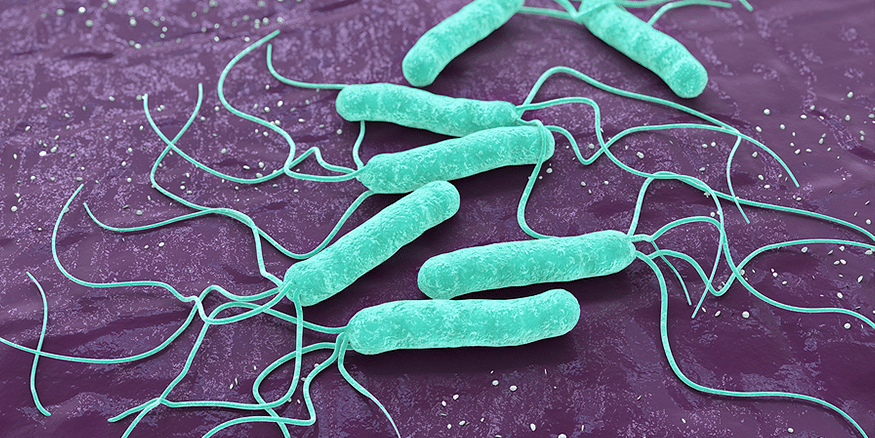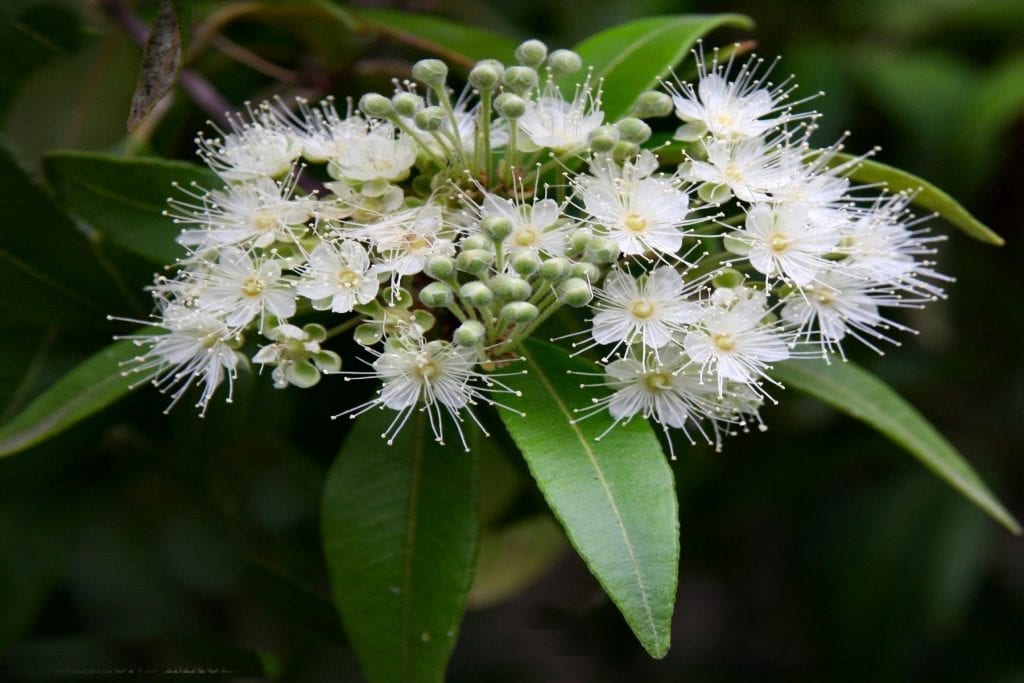Lemon Myrtle is a superfood about to explode onto the world stage, despite the Australian Aborigines having known about its amazing health benefits for centuries. If you suffer from digestion issues such as indigestion, heartburn, acid reflux or even gastroesophageal reflux disease (GERD), you need a soothing cup of lemon myrtle tea, every day after meals.
What is Lemon Myrtle?

Lemon myrtle (Backhousia citriodora) is a native Australian tree that grows on the central east coast of Australia. The fragrant flowers are a creamy-white colour with 5 petals and long, fluffy stamens that grow out from the centre of the flower, giving it a soft, ethereal look.
The aromatic leaves are slender and are a glossy mid-green colour. This is where all the action is.
Lemon Myrtle – Digestion Heaven
Whether you are suffering from an upset tummy due to a bug or suffer the discomfort and often painful symptoms of indigestion, such as acid reflux or heartburn, you need to keep some lemon myrtle tea in the kitchen. And in the medicine cabinet.
Of the many tests done on lemon myrtle extract, all of them found it effective against common food-borne bacteria, bacteria associated with food spoilage and moulds. In other words, this is the kind of herbal tea you want on hand in case of food poisoning.
The leaves of the lemon myrtle tea is made from containing potent anti-inflammatory properties as well as antibacterial and antimicrobial qualities. These work in synchronised harmony to alleviate any discomfort caused by unwelcome gut bacteria without harming the beneficial bacteria.

Helicobacter pylori are one type of nasty bacteria that, if left to multiply, can cause ulcers to form in the lining of your stomach and upper intestine. If these are left untreated, it exposes you to a greater risk of stomach cancer.
The anti-inflammatory and anti-spasmodic properties of this brilliant Aussie superfood have been found to have potential in the treatment of Inflammatory Bowel Disease (IBD), another condition on the increase. And are more than a match for the stomach spasms associated with food poisoning.
Incidentally, it is also effective at reducing the frequency and severity of menstrual cramps.
Keeping some cancers at bay

Lemon myrtle is a killer when it comes to liver, bladder, colon and stomach cancer cells.
Antioxidants are some of our best friends when it comes to protecting our bodies from potential threats, such as cancer. One way they protect us is by ridding the body of harmful free radicals. These unstable atoms roam our bodies destroying cells and increasing our chance of getting cancer.
The extremely potent antioxidants in lemon myrtle destroy these free radicals and help repair cellular damage and protect healthy cells.
In addition to killing off free radicals, the Commonwealth Scientific and Industrial Research Organisation (CSIRO), an Australian government scientific research agency, discovered lemon myrtle extract made certain cancer cells shrivel up and die, as well.
Even better, this research was supported by the University of New South Wales when they carried out similar investigations and discovered the anti-cancer properties of lemon myrtle did, in fact, destroy liver, colon, bladder and stomach cancer cells, but, unfortunately, not leukaemia cells.
If you don’t find lemon myrtle near by places, you can also buy pure product online.
Conclusion
In this article, we have barely scraped the surface of all the amazing benefits of lemon myrtle, but we have covered some pretty big issues. Taken after meals, this deliciously lemony herbal tea may not only protect you from the discomfort of indigestion, but it may also offer you protection from certain cancers – what a tasty way to stay relaxed and healthy.

